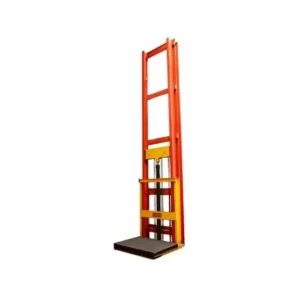Hydraulic Oil Seal: Small Components, Big Impact
In the world of hydraulic systems, efficiency and reliability are paramount. Whether in industrial machinery, automotive applications, or construction equipment, the performance of these systems heavily relies on the seamless interaction of various components. One small but crucial part in ensuring smooth operation is the hydraulic oil seal. Though often overlooked, the hydraulic oil seal plays a significant role in preventing leaks, maintaining pressure, and extending the life of hydraulic systems. This blog explores the importance of hydraulic oil seals, their role in machinery, and why their selection and maintenance are vital for system longevity.
What Is a Hydraulic Oil Seal?
A hydraulic oil seal is a component designed to prevent leakage of hydraulic fluid while allowing controlled movement between different parts of a hydraulic system. These seals typically consist of elastomeric materials that are resistant to the high pressure and temperatures commonly encountered in hydraulic systems. Their primary purpose is to prevent fluid from escaping from the system while also preventing contaminants from entering the system.
Hydraulic oil seals are used in a variety of applications, such as cylinders, pumps, valves, and other moving parts within hydraulic systems. These seals ensure that the pressure within the system remains constant and that the hydraulic fluid remains free of contaminants. Without hydraulic oil seals, the integrity of the entire system could be compromised, resulting in costly repairs, maintenance, or even equipment failure.
The Critical Role of Hydraulic Oil Seals in Hydraulic Systems
At first glance, a hydraulic oil seal may appear to be just a small, inconspicuous component, but its role is far from minor. A properly functioning seal ensures that a hydraulic system operates efficiently, safely, and reliably. Below are some of the key roles that hydraulic oil seals play:
- Prevent Fluid Leakage
The most fundamental role of hydraulic oil seals is to prevent hydraulic fluid from leaking out of the system. In hydraulic systems, fluid is under high pressure, and even the smallest leak can lead to significant pressure loss, system malfunction, or a reduction in system efficiency. A hydraulic oil seal acts as a barrier, ensuring that the fluid stays within the system, thereby maintaining the necessary pressure levels for smooth operation. - Keep Contaminants Out
In addition to preventing fluid leakage, hydraulic oil seals also protect the system by preventing dirt, dust, and other contaminants from entering. Contamination is one of the leading causes of hydraulic system failure. Foreign particles can wear down vital components such as pistons, cylinders, and pumps, resulting in system degradation. The oil seal acts as a first line of defense, ensuring that only clean fluid circulates through the system. - Enhance System Efficiency
Hydraulic oil seals play a vital role in maintaining system pressure and preventing leaks. When fluid leaks, it can lead to a reduction in pressure, which in turn can cause a drop in performance. The seal ensures that pressure remains constant, thus allowing the hydraulic system to work at optimal efficiency. This leads to improved performance and reduced energy consumption over time.
Factors to Consider When Choosing Hydraulic Oil Seals
When selecting hydraulic oil seals for a specific application, several factors must be taken into account to ensure that the seal performs effectively. These include:
- Material Compatibility
The material of the oil seal must be compatible with the hydraulic fluid being used in the system. Different types of hydraulic fluids, such as mineral oils, synthetic oils, or water-based fluids, require different sealing materials. The chosen material must be able to withstand the chemical properties of the fluid without deteriorating or becoming brittle over time. - Pressure and Temperature Conditions
Hydraulic systems operate under a wide range of pressures and temperatures, and the oil seal must be able to perform under these conditions. High-pressure systems require seals that can withstand significant force without failing, while high-temperature environments require seals that can resist heat and maintain their sealing properties. - Seal Design
The design of the seal is another important factor to consider. The right seal design can make all the difference in terms of performance and longevity. The design should ensure that the seal provides an effective barrier against fluid leakage and contamination while being durable enough to withstand the stresses of the hydraulic system.
Conclusion
In conclusion, the hydraulic oil seal is a small but vital component in hydraulic systems, playing a critical role in maintaining fluid containment, preventing contamination, and enhancing system performance. These seals are designed to handle the pressures, temperatures, and environmental conditions typically encountered in hydraulic machinery. By preventing leaks and protecting against contaminants, hydraulic oil seals help extend the lifespan of equipment, improve efficiency, and reduce the risk of costly repairs. When selecting hydraulic oil seals, it is important to consider factors such as material compatibility, pressure conditions, and environmental factors to ensure optimal performance.
Despite their small size, hydraulic oil seals have a big impact on the efficiency and longevity of hydraulic systems, making them essential components in industries ranging from manufacturing to construction, automotive to aerospace. The role of these small yet critical components cannot be overstated—they are the unsung heroes that ensure hydraulic systems continue to operate at peak performance.



